The book of Revelation twice calls Jesus the king of kings and the lord of lords. In these passages, he is depicted as the Lamb who is warred against by the beast and the kings of the earth, but who, in the end, triumphs over his enemies.[1]
Revelation 17:14 (NASB) “These will wage war against the Lamb, and the Lamb will overcome them, because He is Lord of lords and King of kings, and those who are with Him are the called and chosen and faithful.” (emphasis added)
Revelation 19:16 (NASB) And on His robe and on His thigh He has a name written, “KING OF KINGS, AND LORD OF LORDS.” (emphasis added)
Many interpret this royal designation as proof that Jesus is deity. They reason that only God can hold this rank, therefore Jesus must be God. Often Paul’s comments to Timothy are used as textual support:
1 Timothy 6:13-16 (NASB) I charge you in the presence of God, who gives life to all things, and of Christ Jesus, who testified the good confession before Pontius Pilate, 14 that you keep the commandment without stain or reproach until the appearing of our Lord Jesus Christ, 15 which He will bring about at the proper time—He who is the blessed and only Sovereign, the King of kings and Lord of lords, 16 who alone possesses immortality and dwells in unapproachable light, whom no man has seen or can see. To Him be honor and eternal dominion! Amen. (emphasis added)
Some claim that the pronoun “He” in verse 15 refers to Jesus, thus making him “the only sovereign, the King of kings and Lord of lords.” They conclude that Jesus is, therefore, God. However, Paul is actually referring to God the Father here, not Jesus. We know this because Paul describes this “He” as someone “whom no man has seen or can see.” Scripture tells us that God cannot be seen.[2] On the other hand, Jesus was seen by the multitudes during his earthly ministry. Instead of being the invisible God, Jesus is the image of the invisible God.
Does Being King of Kings Mean You Are God?
Some might still conclude, however, that because God the Father and Jesus both bear the same title, it must mean that they are both God. This is a common assumption but a faulty one that does not take into account the full testimony of Scripture. The Bible records other men who were also given this title. Surely, we would not conclude that they, too are God. For example, King Artaxerxes, a pagan ruler, referred to himself as the king of kings:
Ezra 7:11-13 (NASB) Now this is the copy of the decree which King Artaxerxes gave to Ezra the priest, the scribe, learned in the words of the commandments of the LORD and His statutes to Israel: 12 “Artaxerxes, king of kings, to Ezra the priest, the scribe of the law of the God of heaven, perfect peace. And now 13 I have issued a decree that any of the people of Israel and their priests and the Levites in my kingdom who are willing to go to Jerusalem, may go with you. (emphasis added)
While the title may have been a self-appointed one in Artaxerxes case, God is the one who bestowed it upon a pagan king named Nebuchadnezzar:
Ezekiel 26:7 (NASB) For thus says the Lord GOD, “Behold, I will bring upon Tyre from the north Nebuchadnezzar king of Babylon, king of kings, with horses, chariots, cavalry and a great army. (emphasis added)
If king of kings is an appellation reserved for deity, how could God rightly call a heathen king by this name? It’s because the title is not exclusively used of God.
Semitic languages often use a noun to modify another noun instead of describing something or someone in superlatives like we do. Here are some examples from Scripture where a noun is used to modify another noun and how we might say it differently today:
Nebuchadnezzar called Yahweh the “god of gods” because Daniel’s god could interpret dreams.[3] In our vernacular, we would say Daniel’s god is the greatest or that He is the greatest of the gods.
Noah said that Canaan would be the “servant of servants.”[4] The context helps us understand that because of his sin, Noah’s youngest son would be considered the lowest of the servants.
The innermost sanctuary of the tabernacle, and later the Temple, where God’s presence was made manifest, was called the “holy of holies,” or, as we might say, the holiest place or the most holy place.[5]
King Solomon is said to have penned 1,005 songs. The Song of Solomon is referred to as “the song of songs” or as we would say, the best of the songs.[6]
The book of Ecclesiastes declares life without God is “vanity of vanities“ or the most meaningless pursuit of all, as we would put it.[7]
In the original Hebrew, Moses said that God owns the “heavens of the heavens.” To help us better understand the meaning, translators converted the phrase to say the “highest heaven.”[8]
While many more examples could be offered, these help us to see that the phrase king of kings is a Semitic way of saying someone is the greatest king. If the angel in John’s apocalyptic vision wanted John, and us, to know that Jesus is God, he could have said Jesus is the God of gods and the Lord of lords, for this is how Yahweh is described:
Deuteronomy 10:17 (NASB) “For the LORD [Yahweh] your God is the God of gods and the Lord of lords, the great, the mighty, and the awesome God who does not show partiality nor take a bribe. (emphasis added)
But this is not what the angel wanted to convey. Instead, the angel identified the Lamb as the highest of all the kings, and the greatest of all the lords. Artaxerxes was the greatest king in his day, as was Nebuchadnezzar in his. The context of Revelation, however, explains that Jesus is the greatest king and lord, not just in a given age, but for all time.
Why is Jesus Called King of Kings?
Why does Jesus bear this exalted title? Scripture never explains or implies that this honor belongs to him because he is God. Nor is he ever called the God of gods like Yahweh is in the above verse. On the contrary, we’re told that this exalted position was given to Jesus by God:
Ephesians 1:17, 20-23 (NASB) that the God of our Lord Jesus, the Father of Glory…which He [God] brought about in Christ, when He raised Him from the dead and seated Him at His right hand in the heavenly places, 21 far above all rule and authority and power and dominion, and every name that is named, not only in this age but also in the one to come. 22 And He put all things in subjection under His feet, and gave Him as head over all things to the church, 23 which is His body, the fullness of Him who fills all in all. (emphasis added)
God raised Jesus from the dead and exalted him to the highest position of authority in the coming eternal kingdom, not because he is God, but because of his obedience to his God as Paul explains in his letter to the Philippians.[9]
God Appoints Kings to Rule Under His Authority
Scripture records that God has appointed men to rule as kings under His royal authority. For example, when the Israelites longed to have a king like the other nations, it grieved the prophet Samuel. But God told him to do as the people had asked for they had not rejected Samuel, but God as their king.
1 Samuel 8:6-7 (NASB) But the thing was displeasing in the sight of Samuel when they said, “Give us a king to judge us.” And Samuel prayed to the LORD. 7 The LORD said to Samuel, “Listen to the voice of the people in regard to all that they say to you, for they have not rejected you, but they have rejected Me from being king over them. (emphasis added)
God then told Samuel to anoint Saul to be Israel’s first (human) king. God was Israel’s ultimate ruler,[10] and those who ruled on His behalf were given the same royal title.
Later, it was prophesied that God would exalt a man to be king over, not just Israel, but the whole earth. The psalmist said that God would install His king on Zion and give him authority over all the nations:
Psalm 2:6-12 (NASB) “But as for Me, I have installed My King upon Zion, My holy mountain.” 7 “I will surely tell of the decree of the LORD: He said to Me, ‘You are My Son, Today I have begotten You. 8 ‘Ask of Me, and I will surely give the nations as Your inheritance, and the very ends of the earth as Your possession. 9 ‘You shall break them with a rod of iron, You shall shatter them like earthenware.'” 10 Now therefore, O kings, show discernment; take warning, O judges of the earth. 11 Worship the LORD [Yahweh] with reverence and rejoice with trembling. 12 Do homage to the Son, that He not become angry, and you perish in the way, For His wrath may soon be kindled. How blessed are all who take refuge in Him! (emphasis added)
Daniel’s prophecy echoes that of the psalmist’s:
Daniel 7:13-14 (NASB) “I kept looking in the night visions, and behold, with the clouds of heaven one like a Son of Man was coming, and He came up to the Ancient of Days And was presented before Him. 14 “And to Him was given dominion, glory and a kingdom, That all the peoples, nations and men of every language might serve Him. His dominion is an everlasting dominion which will not pass away; and His kingdom is one which will not be destroyed. (emphasis added)
If Jesus is God, all of creation and all authority would inherently belong to him. But after God raised Jesus from the dead, He exalted him and gave him dominion, glory, and an eternal kingdom. For this reason, Jesus is the ruler of the kings of the earth:
Revelation 1:5 (NASB) and from Jesus Christ, the faithful witness, the firstborn of the dead, and the ruler of the kings of the earth. To Him who loves us and released us from our sins by His blood— (emphasis added)
Jesus is Subordinate to God
Despite Jesus’ exalted position, he is not equal to God in essence or nature. He is, however, equal in function or purpose. Joseph’s exaltation as Pharaoh’s second in command is an example of this kind of equality, which is explained by the principle or law of agency. Joseph’s example provides us with a foreshadowing of the coming messiah:
Genesis 41:39-41 (NASB) So Pharaoh said to Joseph, “Since God has informed you of all this, there is no one so discerning and wise as you are. 40 “You shall be over my house, and according to your command all my people shall do homage; only in the throne I will be greater than you.” 41 Pharaoh said to Joseph, “See, I have set you over all the land of Egypt.” (emphasis added)
The same can be said of Jesus and his relationship with God. Even though God gave Jesus authority and subjected all things to him, nevertheless, as God’s agent, Jesus is in subjection to God.
1 Corinthians 15:24-28 (NASB) then comes the end, when He [Jesus] hands over the kingdom to the God and Father, when He has abolished all rule and all authority and power. 25 For He must reign until He has put all His enemies under His feet. 26 The last enemy that will be abolished is death. 27 For HE [God] HAS PUT ALL THINGS IN SUBJECTION UNDER HIS [Jesus] FEET. But when He says, “All things are put in subjection,” it is evident that He is excepted who put all things in subjection to Him. 28 When all things are subjected to Him, then the Son Himself also will be subjected to the One who subjected all things to Him, so that God may be all in all.
This helps us understand why Jesus said that the Father was greater:
John 14:28 (NASB) “You heard that I said to you, ‘I go away, and I will come to you.’ If you loved Me, you would have rejoiced because I go to the Father, for the Father is greater than I. (emphasis added)
God is rightly called the God of gods, the king of kings, and the lord of lords, for He is the highest authority. But as God’s agent and His subordinate, Jesus can also rightly be called king of kings and lord of lords. For it was God who exalted Jesus to the position of both Lord and Christ (i.e., anointed king)
Acts 2:36 (NASB) “Therefore let all the house of Israel know for certain that God has made Him both Lord and Christ—this Jesus whom you crucified.” (emphasis added)
For Jesus to be called the king of kings and the lord of lords is indeed an honor, but it does not mean that he is God.
[1] Revelation 19:19; 20:1ff.
[2] Exodus 33:20; Colossians 1:15; 1 John 4:12.
[5] Exodus 26:33.
[6] 1 Kings 4:32; Song of Solomon 1:1.
[7] Ecclesiastes 1:2; 12:8.
[8] Deuteronomy 10:17.
[9] Philippians 2:5-11.
[10] God is referred to as Israel’s king. Isaiah 43:15; 44:6, etc.
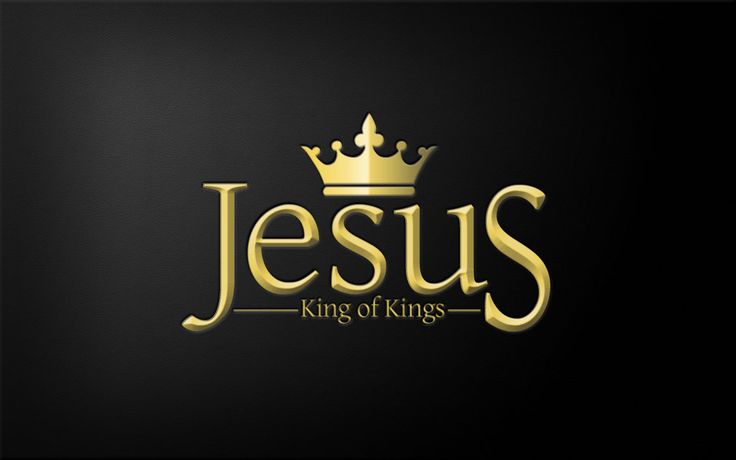
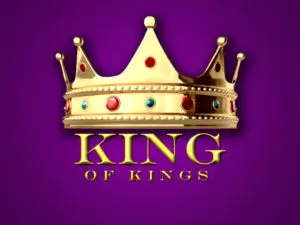
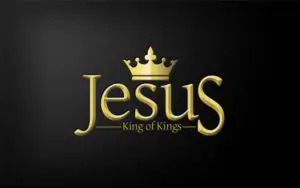

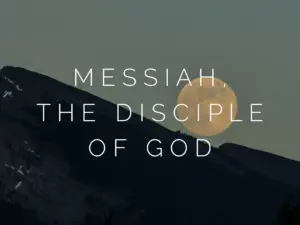

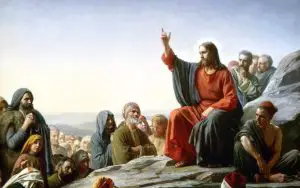

I am certain that Thomas called Jesus…. My Lord and my God. Jesus was God in flesh.
Hi Tom,
Thanks for reading the article. The verse you’re referencing is John 20:28. I have an article addressing Thomas’ statement that you may find interesting. In the article, I demonstrate how the context of chapter 20, among other things, does not support your interpretation. Here is the link: https://onegodworship.com/john-2028-my-lord-and-my-god/ Let me know what you think. Again, thanks for stopping by the website. God bless!